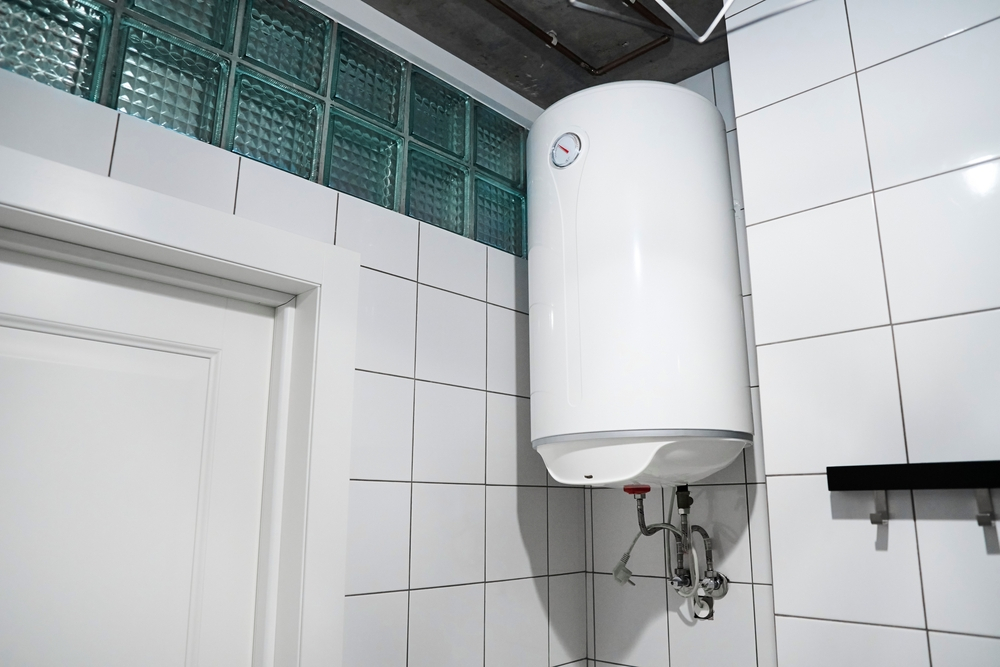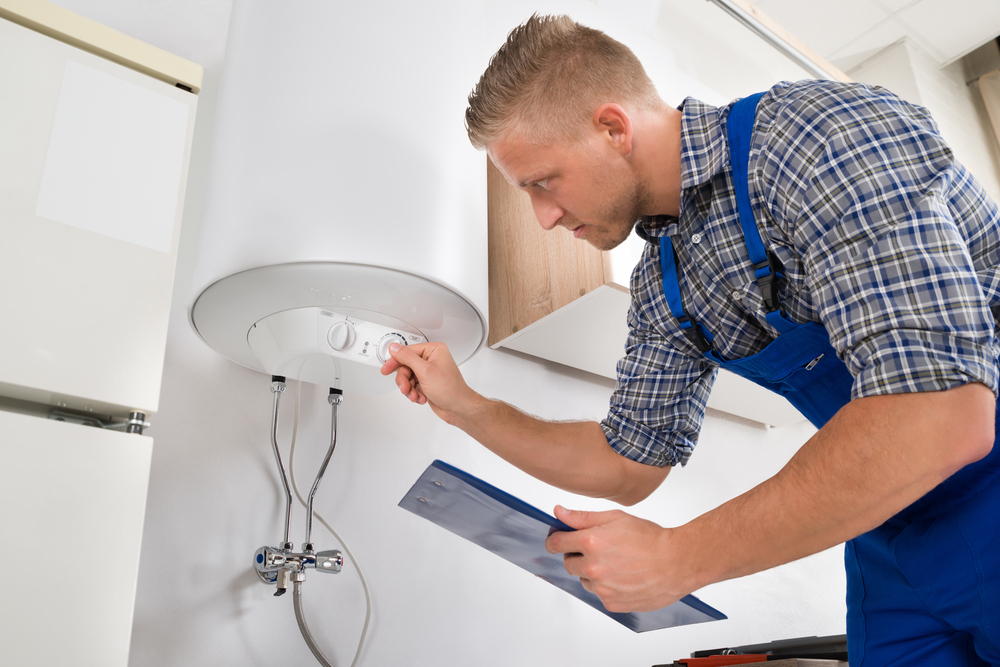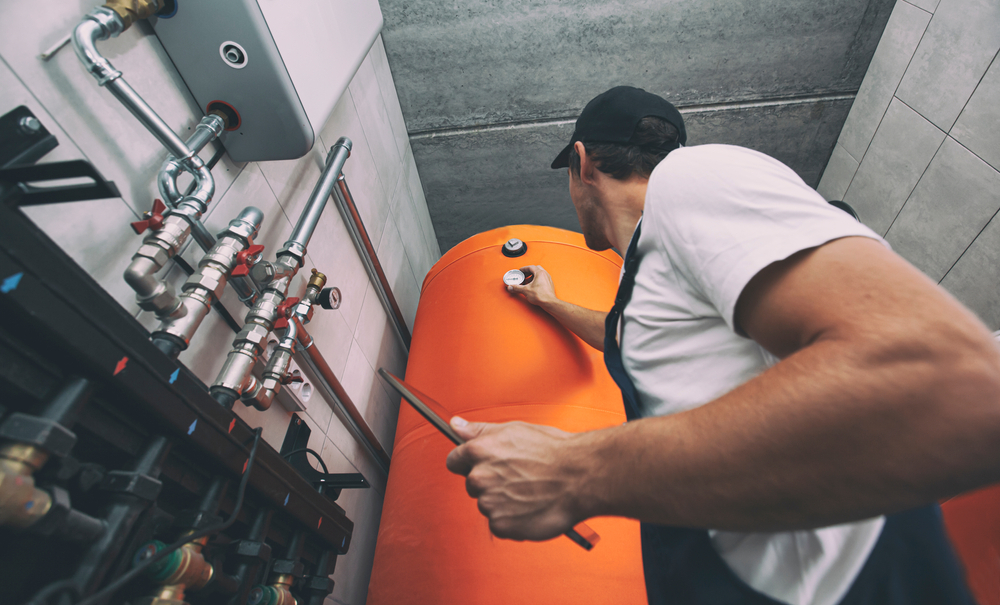Any house needs a dependable water heater since it supplies hot water for many daily chores including cooking, cleaning, and bathing. But not all water heaters are made equally, and as technology develops the choices for more affordable and effective water heating systems also change. Your energy expenditures, environmental impact, and general home comfort may all be much improved by switching to a new, effective water heater. The several advantages of upgrading, the several kinds of effective water heaters on the market, and what factors should be taken into account prior to the change will all be discussed in this extensive guide.

Current Water Heater: Problems and Inefficiencies
Many homes still rely on conventional water heaters, which although useful might not be the most ecologically friendly or efficient choice. Many times, these older models come with a range of issues that might result in higher costs, more energy usage, and a more major environmental impact.
The inefficacy of conventional water heaters un heating water is one of their most often occurring problems. Usually running continuously, these devices maintain a tank of hot water, which causes energy waste as heat leaks from the tank over the day. Higher energy bills are mostly related to this continuous cycle of heating and reheating water, sometimes referred to as standby heat loss.
Older water heaters’ vulnerability to frequent malfunctions and repairs is another problem. As these units age, the parts inside them—such as the anode rod or the heating elements—may wear out and cause expensive repairs or, occasionally, complete failure. Furthermore, silt accumulation in the tank can lower the efficiency of the unit, which would force it to run harder and use more energy to heat the same volume of water.
At last, conventional water heaters sometimes lack energy efficiency in consideration. They lack sophisticated features like insulated jackets, which can greatly lower heat loss, or programmable thermostats, which let one better control water temperature. This lack of modern efficiency features can lead to unduly high energy use, therefore contributing to greater carbon footprints and rising utility expenses.
Benefits of Upgrading to a More Efficient Water Heater
Changing to a more effective water heater has many benefits that would justify the purchase. A modern water heater can offer these advantages and more whether your goals are to lower your environmental impact, cut your energy expenses, or just enjoy more consistent hot water.
Cost Savings
Reducing energy costs is one of the most obvious and concrete advantages of switching to a more efficient water heater. Modern water heaters use less power to heat water and minimize standby heat loss, thereby maximizing energy efficiency. Tankless water heaters, for instance, only heat water as needed, therefore removing the energy loss involved in maintaining a hot tank. These savings can mount up really quickly, hence the initial outlay for a modern water heater pays off.
Environmental Impact
Changing to an energy-efficient water heater benefits the environment as well as your pocketbook. These contemporary units help to cut greenhouse gas emissions by utilizing less energy, therefore reducing the carbon footprint of your property. Further lowering their environmental impact are several effective water heaters, including solar and heat pump versions, which run on renewable energy sources or natural heat from the surroundings.
Better Performance
Better performance from upgraded water heaters guarantees a more constant and dependable supply of hot water. While heat pump water heaters can supply hot water at a fraction of the energy cost of conventional types, tankless ones can provide limitless hot water on demand. This better performance not only makes you more comfortable but also less likely to run out of hot water at times of maximum consumption.
Types of Efficient Water Heaters
Understanding the several kinds of water heaters on the market—each with special qualities and advantages—is crucial while thinking about an upgrade. Here is a closer look at a few of the most effective water heaters available nowadays.
Tankless Water Heaters
Those trying to maximize energy economy often use tankless water heaters, sometimes referred to as on-demand water heaters. Tankless devices heat water just when needed, unlike conventional types that store hot water in a tank. They are therefore considerably more efficient since there is no standby heat loss. Larger homes would find tankless water heaters perfect as they are small, save space, and can deliver an infinite supply of hot water.
It is noteworthy, nevertheless, that tankless water heaters usually cost more upfront than conventional versions. They also need a strong power source—either gas or electricity—which can call for changes to the current systems in your house. Notwithstanding these factors, tankless water heaters are usually a reasonably affordable option given the long-term energy savings.
Solar Water Heaters
Solar water heaters are a great choice for people trying to reduce their impact on the surroundings. These systems heat water by first gathering solar panel-powered energy from the sun. Particularly in sunny climates, solar water heaters can be quite efficient and help you drastically cut or perhaps completely avoid your water heating expenses.
Active and passive solar water heaters are the two primary varieties. Whereas passive systems rely on gravity and natural circulation, active systems circulate water through the solar collectors using pumps. Although the initial outlay for a solar water heater can be significant, environmentally aware homeowners may find this appealing given the potential savings on energy bills and possible tax advantages.
Heat Pump Water Heaters
Another energy-efficient choice that will help you save money over time are heat pump water heaters, sometimes referred to as hybrid water heaters. Rather than producing heat directly, these units heat the water by moving heat from the surrounding air or ground. Because this approach is far more efficient than conventional techniques, heat pump water heaters can run up to 60% less energy.
Since they need ambient heat to run effectively, heat pump water heaters are ideal for warm climates. Although they are usually more costly initially than conventional models, over time they provide significant energy savings. Some types can also be included into the heating and cooling system of your house, therefore offering even more energy economy.
Condensing Water Heaters
Condensing water heaters are meant for homes mostly using natural gas as its fuel source. Highly efficient, these machines capture and recycle the heat from the exhaust gases—heat that would otherwise be squandered in conventional water heaters. This procedure not only increases the efficiency of condensing water heaters but also lowers the atmospheric hazardous pollutants produced.
Usually having a larger tank than conventional versions, condensing water heaters provide more hot water storage and more effective serving of larger households. Although they could be more expensive initially, homeowners with high hot water consumption would be wise to invest in them because their efficiency and possibility for reduced energy bills.

Considerations Before Making the Upgrade
Changing to a more effective water heater calls much more than simply choosing the correct kind. To guarantee you select the finest solution for your house and budget, there are numerous important things to take into account.
Size and Capacity
The size and capacity of your water heater should be among the first things you give thought to when updating it. The suitable capacity for your new water heater will depend on the size of your house and your hot water demand. For example, a bigger family with several bathrooms may need more capacity water heater than a smaller residence. Selecting a unit that can satisfy your peak hot water consumption without overworking is crucial since it guarantees lifespan and efficiency.
Energy Efficiency Rating
Long-term cost-effectiveness of a water heater depends critically on its energy efficiency rating. Search for units with high Energy Factor (EF) ratings since they show better efficiency. Many water heaters also carry Energy Star certifications, which indicates they either meet or surpass federal energy efficiency requirements. Selecting a unit with a high-efficiency rating will help to drastically lower your environmental impact and energy costs.
Fuel Type
Additionally affecting your water heater’s running expenses and efficiency is the type of fuel it uses. Typical fuels include of sunlight, natural gas, propane, and electricity. Regarding cost, availability, and environmental effect, each has advantages and drawbacks. For instance, although they run less expensive and are usually more efficient than electric models, natural gas water heaters depend on a gas connection. Conversely, solar water heaters require a lot of sunlight to be successful even when their running expenses are low. When changing your water heater, give your fuel choices great thought.
Cost
Although an efficient water heater’s initial cost could be more than that of a conventional type, one should take long-term energy savings on maintenance into account. Further mitigating the initial outlay are some effective water heaters’ eligibility for tax benefits or refunds. When planning a new water heater, consider installation expenses, possible improvements to your house’s plumbing or electrical systems, and any other equipment required—such as heat pumps or solar panels.
Installation Process
Installation comes next once you’ve chosen the correct water heater for your house. Although some homeowners might decide to install their water heaters themselves, it’s usually advised to use a professional to guarantee the task is done safely and correctly.
Choosing the Right Location
Selecting the correct spot for your new water heater comes first in the installation procedure. The site should be close to the places where hot water is utilized most often and readily accessible for repairs and maintenance. If you are building a gas-powered or heat pump water heater, the site should also have enough ventilation. Additionally helping to reduce heat loss and increase water heater efficiency is correct installation.
Preparing the Area and Disconnecting the Existing Water Heater
You will have to clean the area to make sure the new water heater has enough room and remove any impediments before it is installed. First you must disconnect any existing water heater you are replacing. This entails emptying the tank, turning off the water supply, and cutting off the gas or electricity source. Since the old water heater could contain hazardous elements, it is also imperative to dispose of properly.
Installing the New Water Heater
The kind of water heater you are installing will affect the installation process. Mounting the tank on the wall and connecting it to the water supply and electricity source will be requirements for tankless water heaters. Solar water heaters must have solar panels installed and then connected to the water heater. Heat pump water heaters should be positioned in a spot with enough air flow. A qualified installation will make sure the water heater is adjusted to the right temperature, the device is correctly vented, and all connections are secure.
Testing and Final Checks
Testing the water heater is quite vital once the installation is finished to guarantee it’s running as it should. This entails turning on the gas or power source, fulling the tank with water, and looking for any leaks or problems. To guarantee the water heater runs safely and effectively, the installation should also verify the temperature and pressure settings.
Maintenance and Care Tips
Regular maintenance is crucial if you want your new water heater to maximize lifetime and efficiency. Good maintenance helps to extend the life of the equipment, increase performance, and avoid expensive repairs.
Regular Draining and Flushing
As sediment accumulates in your water heater’s tank over time, its efficiency may drop and harm may result. Frequent tank flushing and draining will help to eliminate this silt and maintain the seamless operation of your water heater. Although it’s advised to perform this at least once a year, in hard water areas more frequent flushing could be required.
Checking the Anode Rod
A vital part of your water heater that stops corrosion is the anode rod. The anode rod wears out with time and must be replaced. Annually checking the anode rod and replacing it as needed will help your water heater last as long as possible and stop leaks.
Insulating the Tank and Pipes
By insulating your pipes and water heater tank, heat loss can be minimized and efficiency raised. Older water heaters or those housed in unheated locations particularly depend on this. Affordable and quick to install, insulation jackets and pipe sleeves are a straightforward approach to improve the performance of your water heater.
Regular Professional Inspections
Although regular maintenance is vital, at least once a year professional inspection of your water heater is also crucial. A expert can look for problems including gas leaks or defective wiring that you might not be able to find. Regular inspections help to identify early on issues, so avoiding expensive replacements or repairs.

Conclusion
Investing in a more efficient water heater will help your house be more comfortable, lower your energy consumption, and have less environmental effect. Carefully weighing the several kinds of water heaters, their advantages, and the elements of model selection will help you to decide which one best matches your budget and needs. Good installation and consistent maintenance will guarantee that your new water heater runs for years and runs effectively. Upgrading your water heater using the correct strategy might result in notable savings and a more ecologically friendly house.
Plumbing Services CA
https://maps.app.goo.gl/31Yt4rhDrainzNJ4A
(279) 203-0765
https://plumbingservicesca.com/
